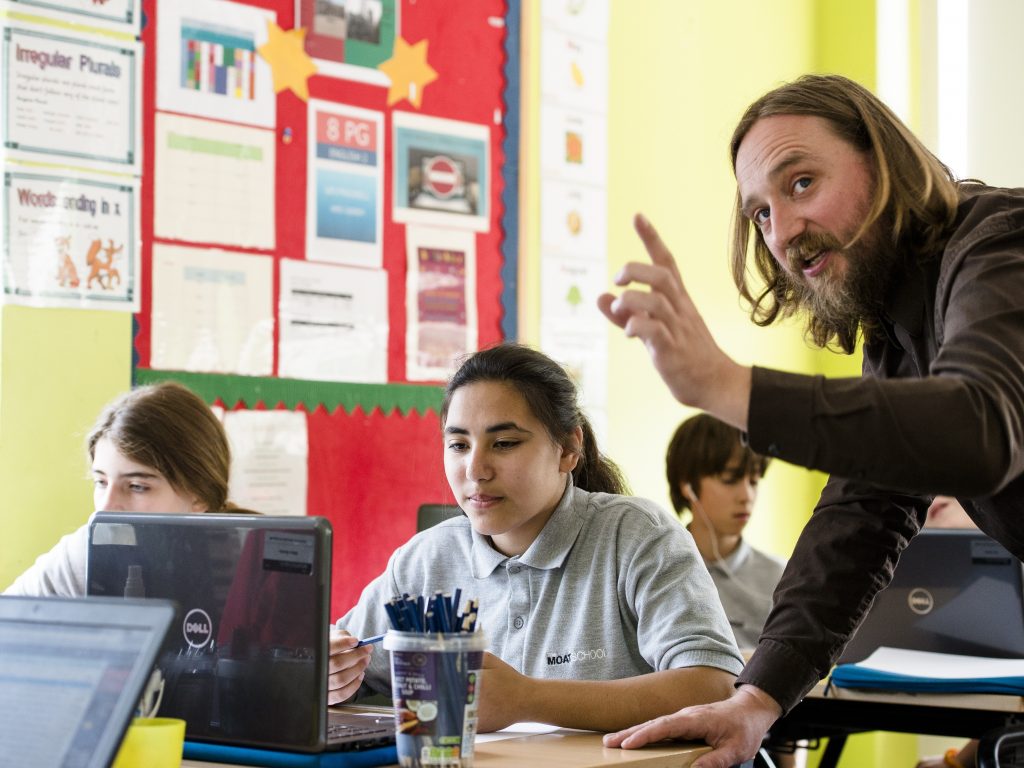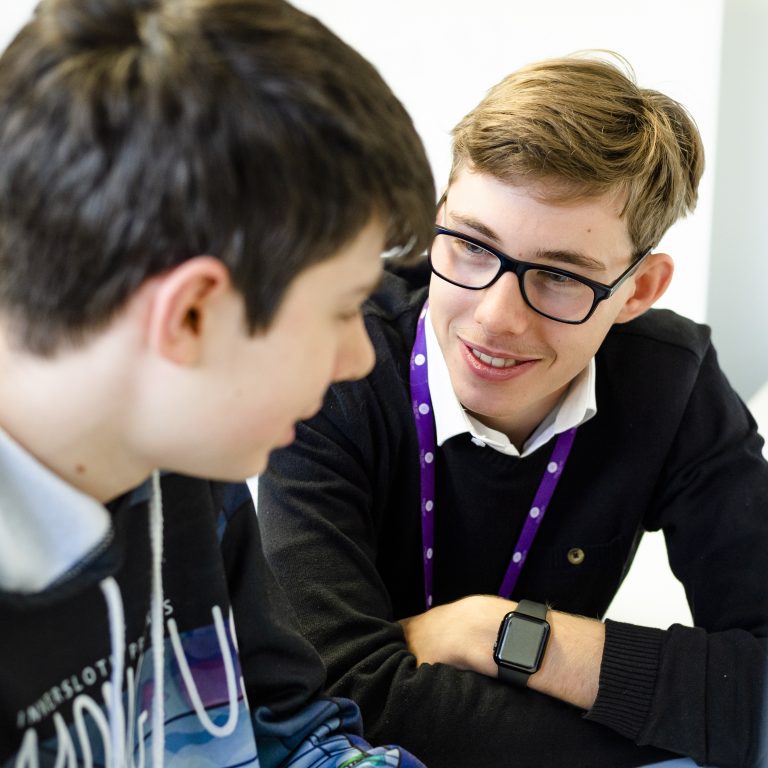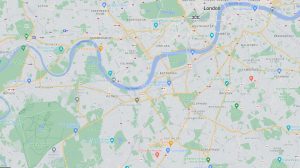The Maths curriculum is broadly divided into six subject areas, which are:
- Number
- Algebra
- Ratio, proportion and rates of change
- Geometry and measures
- Probability
- Statistics
Mathematics is taught in a succession of short topics, normally lasting about two weeks each. A topic such as ‘Angles’ would come under ‘Geometry and measures’, and would be taught at a basic level in the Year 7, then revised and taken to a higher level in subsequent years.
The content of large topics, such as ‘Equations’ is split into subtopics and spread throughout the year. This spiral-structured course provides greater variety and mental stimuli for the pupils than spending long periods of time studying closely related ideas and processes. It also increases the opportunities for revision and reinforcement, which is particularly important for a dyslexic or dyscalculic child’s learning.
Assessments and Methods
Each pupils’ grasp of a topic is assessed by their contribution in class, their homework, and by short tests which occur at least once every half term. The ‘Using and Applying Maths’ part of the course is taught through investigative tasks-some of which are in the form of a practical problem, and some are numerical or algebraic ‘experiments’.
Methods and strategies for mental arithmetic are also taught and practiced. Many dyslexic and dyscalculic children have had great difficulty learning formal methods of calculation (including memorisation of timetables), but excel at thinking laterally or breaking down a calculation into manageable components. This is often taught in short sessions at the beginning of lessons, but sometimes it is taught as a main topic.
Pupils in KS3 are taught within two or three ability groups per year level, with a maximum number of ten pupils in each. As far as possible, the groups will be following the same programme of study (in order to minimize disruption in the event that a pupil needs to change groups). However, the more mathematically able group will be expected to take topics to a more advanced level.
Creating A Positive Experience With Maths
Many pupils that come to us have previously had negative experiences with Maths. At The Moat School, we do our best to make it a positive experience for all pupils. To achieve this we use:
- Lots of physical and /or visual material
- Games
- Real-life examples of how Maths is used.
One particular example is the Number Activity Session, in which all Year 7, 8 and 9 pupils come off the timetable for a morning or afternoon session to take part in practical activities, all of which involve Maths. Some examples from the past are: groups competing to construct the tallest tower from paper, individual designing and painting of giant geometric murals, or taking part in a mental arithmetic ‘quiz show’ to try and win the Mathematics Trophy for their house.
Currently, the Year 10 and 11 pupils sit GCSE Maths at either Foundation or Higher Tier at the end of their 2 years of study.
The examining body is Edexcel and the final examination consists of two calculator papers and one non calculator paper. http://www.edexcel.com/quals/gcse/gcse10/maths/maths-a/Pages/default.aspx
Entry Level Mathematics
This qualification is linear. Linear means that students submit all components that form the assessment at the end of the course. Students should submit for assessment and moderation evidence from eight components as follows:
Subject content
Component 1: properties of number
Component 2: the four operations
Component 3: ratio
Component 4: money
Component 5: the calendar and time
Component 6: measures
Component 7: geometry
Component 8: statistics
Multisensory Strategies Used By The Mathematics Team
Some of the more ‘multisensory’ strategies used by the Mathematics Team include:
- Using cubes / building blocks (area, volume etc.)
- Using origami (shape, angles)
- Looking at Maths in Art (tessellations etc.)
- Project work (CSI style investigation, crash testing using a computer programme)
- Collecting own data for data handling
- Games – “fun-day Friday” where they play a numeracy linked game
- Mini whiteboards, multiplication squares, number grids, counting cubes etc. (hands on resources)
Completion of GCSE Mathematics is important for pupils who seek to further their knowledge at A-Level or college courses. Mathematics is the backbone to many courses, such as Science, Design and Technology, Engineering, Computer Science, Health, Food Technology and Construction. Therefore we endeavor to ensure that all pupils finish with a grade that reflects their true capabilities.
Parent Portal
Parents can find specific curriculum information in their child’s termly ICM reports. These can be accessed via the Parent Portal: https://schoolbase.online



